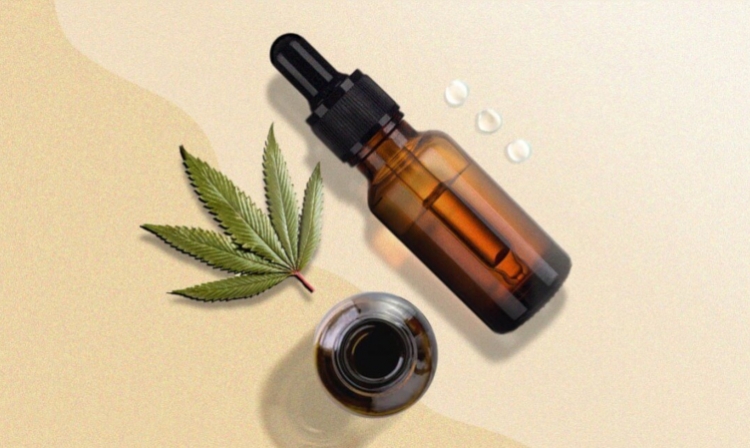A very promising plant-based chemical compound is cannabidiol (CBD). CBD is only one of more than 100 cannabinoids found in cannabis plants - natural chemical compounds with a very interesting, wide and still tested potential for positive and effective action.
In 2019, the annual conference of the American Society for Microbiology presented a research report indicating that CBD cannabidiol effectively fights gram-positive bacteria.
An early stage of tube testing carried out by Dr. Mark Blaskovich of the Institute of Molecular Biology of the Center for Superbacterial Research (Queensland University) in collaboration with Botanix Pharmaceuticals demonstrated the high effectiveness of CBD cannabideol on a wide range of skin problems and infections caused by gram-positive bacteria.
This research was funded by an Australian government grant.
CBD has also proved effective against bacteria showing resistance to traditional antibiotics. It also turned out that CBD does not lose its effectiveness with long-term antibacterial use.
CBD maintained its antibacterial effectiveness over a long period of time. Long after the bacteria produced resistance to such traditional antibiotics as vancomycin, methicillin and daptomycin.
Moreover, cannabidiol damaged the bacterial biofilm, i.e. the physical form of bacterial communities.
Bacterial biofilm is such a difficult fortress in which bacteria protect themselves from the human body's immune system. Interestingly, in bacterial biofilm, different species and types of bacteria can be grouped. In such a spore form, resistant to treatment and antibiotics, the bacteria are waiting for an opportunity to decrease their resistance.
To quote Dr Blaskovich:
Taking into account the documented antibacterial properties of cannabidiol, the existing data on its safety profile and the variety of application methods, it can be concluded that it is a promising antibiotic compound worth further research. The combination of its antibacterial activity and its potential to reduce damage to the body caused by inflammatory infections is particularly interesting and very promising.
Which specific gram-positive bacteria are effective against CBD cannabdiol?
Gram-positive bacteria fought by cannabdiol
Streptococcus pneuomonia
Streptococcus pneuomonia is a pneumocococcal pneumococcal pneumonia. It is one of the most dangerous bacterial pathogens in man. Streptococcus pneumonia causes pneumonia and meningitis. It is estimated that 5-10% of adults and 20-40% of children are carriers. Carrying a duodenal pneumonia is not synonymous with the disease, but with a decrease in immunity the risk of infection increases.
Staphyloccocus aureus
Staphyloccocus aureus is a staphylocococcus aureus. It is estimated that as much as 1/3 of the Earth's population is a carrier of Staphyloccocus aureus. It is particularly common among hospital staff. It is responsible for numerous local (skin) and invasive infections.
Local infections caused by Staphylocococcus aureus include:
- impetigo,
- folliculitis,
- boils (furunculus),
- Purity (furunculosis),
- abscesses,
- Sweat gland inflammation (hidradenitis suppurativa),
- Mastitis,
- Subcutaneous tissue inflammation (cellulitis),
- fasciitis
- Rose (erysipelas).
Internal infections caused by Staphylococcus aureus:
- sepsis
- endocarditis
- blood-borne inflammation of the locomotive organs (bones and joints)
- blood-borne kidney inflammation
- haematopoietic pneumonia
- blood-borne infection of the central nervous system
Internal infections caused by Staphyloccocus aureus are characterized by very high mortality rates up to 50%.
CBD and superbacteria
Lock-resistant and antibiotic-resistant bacteria are called super bacteria. The risk of spreading these dangerous microorganisms has been known since 2015 when the World Health Organisation (WHO) published a report on the subject (link can be found in the sources).
The above mentioned tube tests have shown that CBD is capable of killing numerous species of bacteria in a very specific and effective way. It kills not only the mentioned Streptococcus pneumonia and Staphylococcus aureus in their usual antibiotic-susceptible forms.
It also kills super bacteria such as VRSA and VISA (vancomycin-resistant bacteria of the genus Staphylococcus) or MRSA (methicillin-resistant bacteria Streptococcus aureus strains).
During the 20-day examination, none of the strains or types of these bacteria developed resistance to CBD.
CBD and bacteria - the mechanism of killing bacteria
How does the mechanism that makes CBD effectively deal with even drug-resistant bacteria work?
Interesting conclusions are drawn from a study by British researchers in 2019 on Escherichia Coli bacteria.
The bacteria spread and communicate through the membrane bubbles.
A healthy, unencumbered and efficient immune system itself can cope with the problem of bacterial proliferation and infection development. However, if there are not enough antibodies in the body and a so-called immunodeficiency appears, then antibiotics must come into action.
Antibiotics block the possibility of the release of "signals" by the bacterial membrane bubbles, preventing their multiplication and communication. However, if an antibiotic does not work as in the case of super-resistant bacteria, the problem becomes very serious and the invasion of bacteria in the body proceeds without any obstacles.
And now attention.
This study has shown that CBD increases the ability of antibiotics to block the membrane bubbles of bacteria that are also resistant to antibiotics. At the same time it makes the bacteria and super bacteria less resistant to drugs and antibodies of the human immune system. Brilliant!
What is important in the study on Escherichia Coli CBD has acted as a support to increase the power of antibiotics and the efficiency of the immune system itself by reducing the effectiveness of communication and the rate of bacterial proliferation.
This is a cbd blog so let me say:
CBD is a strong natural support for the immune system.
In the light of these findings, cannabidiol improves the performance of our own antibodies and pharmacological drugs, increasing the effectiveness of the entire immune system in fighting microorganisms and bacterial infections.
More advanced and peer-reviewed research is needed to make sure that these mechanisms work in the human body and how exactly. However, researchers are full of optimism and almost certain of the result - cannabidiol will be a weapon in the fight against even the strongest pathogenic bacteria.
Sources:
https://biotechnologia.pl/biotechnologia/biofilm-bakteryjny-co-o-nim-wiemy,17010
https://www.eurekalert.org/pub_releases/2019-06/asfm-cia061719.php
https://www.eurekalert.org/pub_releases/2020-03/uosd-nsc032420.php
https://www.medonet.pl/choroby-od-a-do-z/choroby-zakazne,staphylococcus--aureus--epidermidis---zakazenie-gronkowcowe,artykul,1696441.html
https://apps.who.int/iris/bitstream/handle/10665/194460/9789241509817_eng.pdf;jsessionid=B8ABC7FC0A495884555FB6995B2EC2BA?sequence=1




















